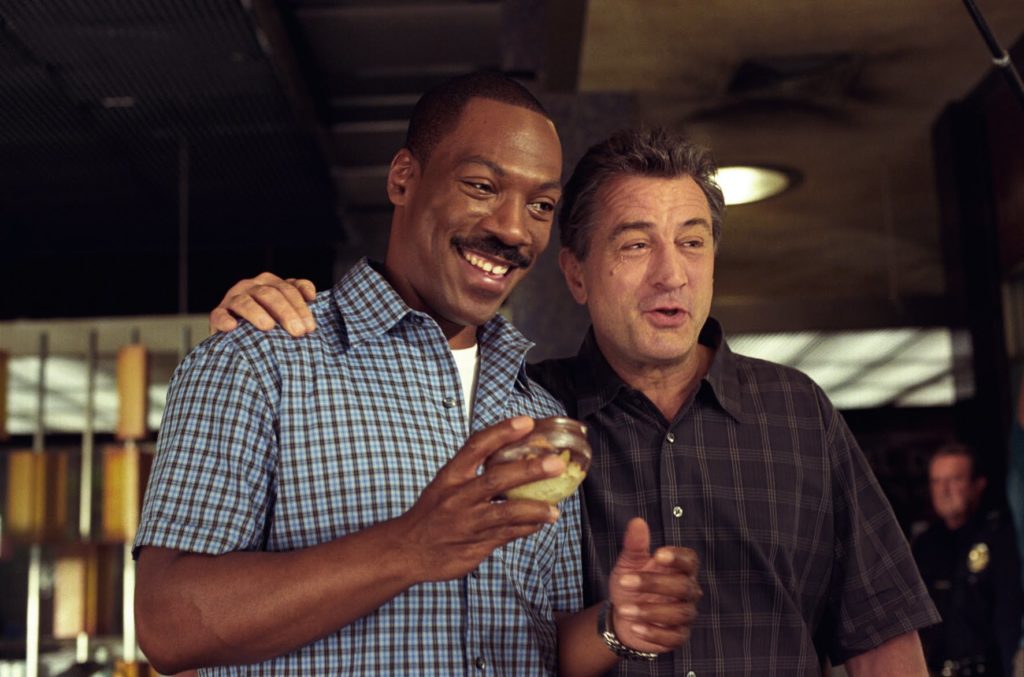
“Being a cop is not like what you see on TV. I’ve never had to cut the red wire or the blue wire. I’ve never had to jump from one rooftop to another. I spend my time investigating crimes, tracking down leads, typing up reports and sitting in court. It’s difficult, tedious work and you’re not going to get rich doing it. But I’ve been on the job 28 years and I wouldn’t have it any other way. I’m a detective. That’s what I do.”
Mitch Preston hates cameras. As a veteran L.A.P.D. detective, Mitch just wants to do his job; he’s not interested in preening for the nightly news. To him, cameras are just a distraction. And a dangerous one at that. Maybe that’s why he shoots one out of a reporter’s hand after a particularly grueling encounter with a particularly exasperating bad guy. He’s in no mood for publicity. But that one shattered camera costs Mitch a lot of grief. The TV station to which it belonged uses Mitch’s reckless action to blackmail his superiors. The station’s entertainment execs threaten to sue the police department unless they are given full access to Mitch so they can create a reality show around him.
They partner Mitch with beat cop and aspiring actor Trey, who’s obviously not going to be much help when it comes to Mitch’s very real police work. The bad guys he is pursuing have very big guns and they aren’t afraid to use them. So with cameras behind him, a goofball partner at his side, and killers in his sights, Mitch is dragged into TV history, kicking and screaming the whole way.
Sound about as thin as a cardboard cereal box? It is. But it’s not really what the movie is about. Showtime has very little to do with the flimsy story relayed in the two paragraphs you just read. Instead, it has everything to do with huge fireballs, frantic car chases and an exploding swimming pool.
positive elements: Mitch makes a solid speech about officers being there for each other while on the job. And Trey learns that he’s right. When push comes to shove, Trey rises to the occasion and proves himself to Mitch.
spiritual content: When Mitch doesn’t immediately invite Trey into his home, Trey jokes about getting left in the hallway “like a Jehovah’s Witness.”
sexual content: Comments about porno stars and homosexual lovers. Crude anatomical references are tossed around. Women at a nightclub appear “dressed to kill.” And a pinup poster serves as a background for one scene.
violent content: Slickly produced and mostly gore-free, but there’s a lot of it. Taking notes from the movie Heat (which also starred De Niro), the bad guys shoot large-caliber bullets at an armored truck, kill the guards and take off with the loot. A shoot-out ensues in which numerous police cars blow up (with their occupants still inside). That’s just one of the many ammunition-fueled altercations in the film, one of which levels an entire house. Another destroys the top floors of a tall hotel. Fisticuffs, slapstick violence and violent threats are also included.
crude or profane language: Nearly 40 s-words make profanity one of the movie’s chief preoccupations. Three f-words (one bleeped, one mouthed and one spoken out loud) add to the clutter, as do more than 40 other milder profanities and crude expressions. The Lord’s name is abused a dozen times.
drug and alcohol content: There are jokes about cops tasting cocaine to make sure it’s real. Mitch insists a good cop would never do such a thing, but Trey likes the way it looks on TV. The bad guys sell drugs. And when Mitch and Trey find a gun-manufacturing lab in a guy’s house, Trey quips, “What ever happened to the good old days when people would just grow pot in their back yards?” Alcohol flows at a nightclub.
other negative elements: Trey jokes about peeing his pants after an exhilarating car chase.
conclusion: Showtime is nothing more than Beverly Hills Cop VIII meets Lethal Weapon IX with a dose of TV’s COPS thrown in for fun. It’s no surprise that producer Jorge Saralegui came up with the idea for the film while watching another cop film. “We’re taking the buddy cop genre and turning it on its head, and at the same time spoofing reality television,” says co-producer Jane Rosenthal. “Our primary job is to entertain people. If they can laugh at it and have a good time, we have achieved our goal. If it also provokes some kind of dialogue afterwards, that’s a bonus.”
Showtime does make fun of itself, but interesting satire really needs to make some kind of a point, and this film avoids points like the plague. It could make a statement about how the modern invasion of the media hurts law enforcement. But it doesn’t. It could also make a statement about how the modern invasion of the media helps law enforcement. But it doesn’t. At best it ridicules our current obsession with reality TV. And it doesn’t even do a very good job of that. Showtime is perfectly content with being a witless buddy cop flick that sports far too much star power for its own good.
